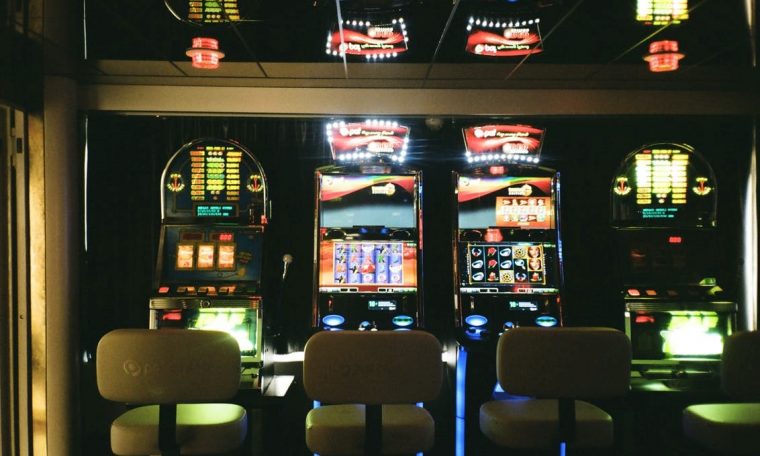
Gambling can be a controversial subject, with many people choosing to focus on negative aspects of the industry rather than exploring the many benefits that it can provide. The reality is that, like any other part of the entertainment sector, the gambling industry contributes to the UK’s economy in many ways. And as a rapidly growing sector worth £14.3 billion in 2019, it’s having a substantial positive impact.
Providing Entertainment
Plenty of people enjoy playing gambling games.
Casino games offer valuable entertainment to people who choose to play them. Some people love to zone out on slot machines after a busy day at work, while others like the challenge of taking on games of skill, like poker and blackjack.
Online casinos have brought the fun and excitement of the casino into peoples’ homes. This means that those who find it difficult to get out are no longer excluded from the fun and can play anytime they like. But it also means there are no in-house team looking after the players, making sure they know their limits and advising them how to play.
This is where a top-quality online casino site like 888 Casino comes in. They make sure that everyone has the information they need to know their games and have the chance to walk away a winner by providing their members with informative blog posts and articles on everything from how to play poker to calculating roulette odds.
They also have an extensive Responsible Gaming Policy that lets users set their own deposit and play time limits, so that they can always feel in control.
A Well Regulated Industry
The Gambling Commission regulates all industry activity.
Unlike many other countries, the UK has chosen to embrace the gambling industry by regulating activity rather than drastically restricting it. This means both physical and online casinos can operate legally without having to jump through endless hoops.
Each establishment needs to apply to the Gambling Commission for a licence, paying the appropriate processing fees. These licensing requirements include paying taxes and protecting the players through endorsing responsible gambling. The taxes that gambling businesses pay depend on what games they offer – for instance, bingo halls pay smaller levies than casinos. The highest taxes are paid by remote gambling operators, regardless of whether they are registered in the UK or not. This point of consumption tax was recently raised from 15% to 21%.
Tax dodging is always in the news in recent times, with many global businesses finding loopholes so that they aren’t paying the correct amount. Gambling operators can’t do this, because it would mean losing their licences, so you can be assured that every penny of tax owed will find its way into the treasury. These taxes are then ploughed back into the community, funding public services like schools, libraries and hospitals, and paying for the upkeep of amenities.
Wide Reaching Effects
Casinos create many different jobs across a whole range of specialisms providing employment for people with many different skills.
Land-based casinos, bingo halls and betting shops also help to boost the economy by providing thousands of jobs for local workers across all manner of different skillsets. This reaches from front of house, bar staff and security on the casino floor, to IT consultants, accountants and website developers working behind the scenes to make sure operations run smoothly. Not only are they keeping people employed, but they are ensuring their staff have their own money to put back into the economy.
A successful casino can also have a knock-on effect on the surrounding businesses. Often people will go to a casino as part of a night out, and nearby restaurants, bars and other entertainment establishments will all benefit from the increased footfall of people looking for somewhere to go beforehand.
Casinos are popular destinations for birthday parties, stag weekends and corporate functions, all of which draw players from further afield. This provide business for hotels and souvenir outlets too.
Many casinos are part of larger complexes too, including their own hotels, restaurants and shops, and all sectors can benefit from the alliance.
A Bright Future
VR casino technology is already in the pipeline.
The gambling industry looks to continue to be a strong part of the UK’s economy for many years to come. The number of people joining online casino sites continues to grow, showing that this is where the industry is heading towards in the future.
With new technology being developed to bring more of the live casino experience into the home, including livestreamed games and virtual reality casinos, there are even more opportunities for the websites to contribute to the economy. This could be a partnership with local businesses, with links to takeaways and delivery services appearing in the games – you could order a pizza from a virtual waitress while playing blackjack to be delivered to your door.
The UK already has one of the highest taxes on online casinos compared to the rest of the world. And it’s because of the volume of players who access these sites that it remains profitable.
For this reason, it’s unlikely that tax rates will be raised any further as the gambling commission don’t want to risk losing businesses entirely. By ensuring that the taxes are payed by the sites rather than the players, such as Japan, the government are ensuring that there is always a market that online casinos to operate in. This also means the players don’t feel that they are being unfairly targeted.
Summary
As long as demand exists, the gambling industry is willing to provide entertainment to the masses. This stimulates the economy and pays back into communities. For once, everybody wins.







